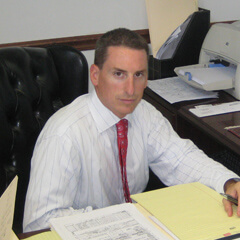Driving While Intoxicated (DWI) charges in New York carry serious consequences, including potential jail time, hefty fines, and a criminal record. However, being charged doesn’t automatically mean conviction. An experienced DWI attorney can leverage strategies to challenge DWI charges and work toward dismissal.
What Is the Legal Standard for DWI in New York?
To convict someone of DWI, prosecutors must prove beyond a reasonable doubt that the defendant was operating a vehicle while impaired by alcohol or drugs. In New York, a blood alcohol concentration (BAC) of 0.08% or higher typically constitutes legal intoxication. For commercial drivers, the threshold is lower at 0.04%, and for drivers under 21, a BAC of 0.02% is enough to violate the state’s zero-tolerance law.
A case dismissal often hinges on the prosecution’s inability to meet this burden of proof. This can occur for several reasons, from procedural mistakes to insufficient evidence.
Common Defenses That Could Lead to a DWI Dismissal
1. Challenging the Traffic Stop
Every DWI case begins with a traffic stop. Law enforcement must have reasonable suspicion that you committed a traffic violation or crime to stop your vehicle. Any evidence obtained afterward may be suppressed if the stop lacked legal justification. For example:
- The officer didn’t observe any traffic violations
- There was no credible evidence of erratic driving
The court may dismiss your case if the traffic stop is ruled unlawful.
2. Questioning the Field Sobriety Tests
Field sobriety tests, such as walking a straight line or standing on one leg, are commonly used to assess impairment. However, these tests are subjective and often unreliable. Factors like uneven surfaces, poor weather conditions, or medical conditions can cause someone to fail despite being sober.
An experienced attorney can challenge the accuracy of these tests and argue that they do not provide sufficient evidence of impairment.
3. Examining Breathalyzer Results
Breathalyzer tests are a cornerstone of DWI cases but are not infallible. Numerous factors can lead to inaccurate results, such as:
- Improper calibration or maintenance of the device
- Operator error by the administering officer
- Medical conditions, such as acid reflux, can skew BAC readings
If there’s evidence that the Breathalyzer results were unreliable, your attorney could move to have them excluded, weakening the prosecution’s case.
4. Contesting Blood Test Procedures
When blood tests are conducted to determine BAC, strict procedures must be followed to preserve the integrity of the sample. Your attorney will examine whether:
- The sample was collected, stored, and tested properly
- There was a chain-of-custody issue
- The lab used appropriate testing methods
Procedural errors could render the blood test results inadmissible, providing grounds for dismissal.
5. Demonstrating a Violation of Your Rights
Law enforcement must adhere to strict constitutional protections during a DWI arrest. Violations of these rights could lead to evidence being suppressed or the case being dismissed. Common examples include:
- Failure to provide Miranda warnings
- Coercion during questioning
- Conducting an unlawful search of your vehicle without probable cause
Evidence obtained in violation of your rights may be excluded, undermining the prosecution’s ability to proceed.
Why You Need an Experienced DWI Attorney
Getting a DWI dismissed requires thoroughly investigating the case’s details, including police reports, video footage, and evidence collection procedures. An experienced criminal defense attorney will analyze every aspect of your case to identify weaknesses in the prosecution’s argument.
Your attorney can also negotiate with prosecutors, potentially leading to reduced charges or case dismissal without going to trial. If your case proceeds to court, they will craft a compelling defense to cast doubt on the evidence against you.
Act Quickly to Protect Your Rights
If you’re facing a DWI charge in New York, time is critical. Evidence can degrade, and witnesses may become more challenging to locate as time passes. Additionally, there are deadlines for requesting administrative hearings to contest license suspensions.
Contacting Michael A. Arbeit, P.C., as soon as possible can make a significant difference in the outcome of your case. Attorney Arbeit will guide you through the process, explain your options, and fight for the best possible resolution.

